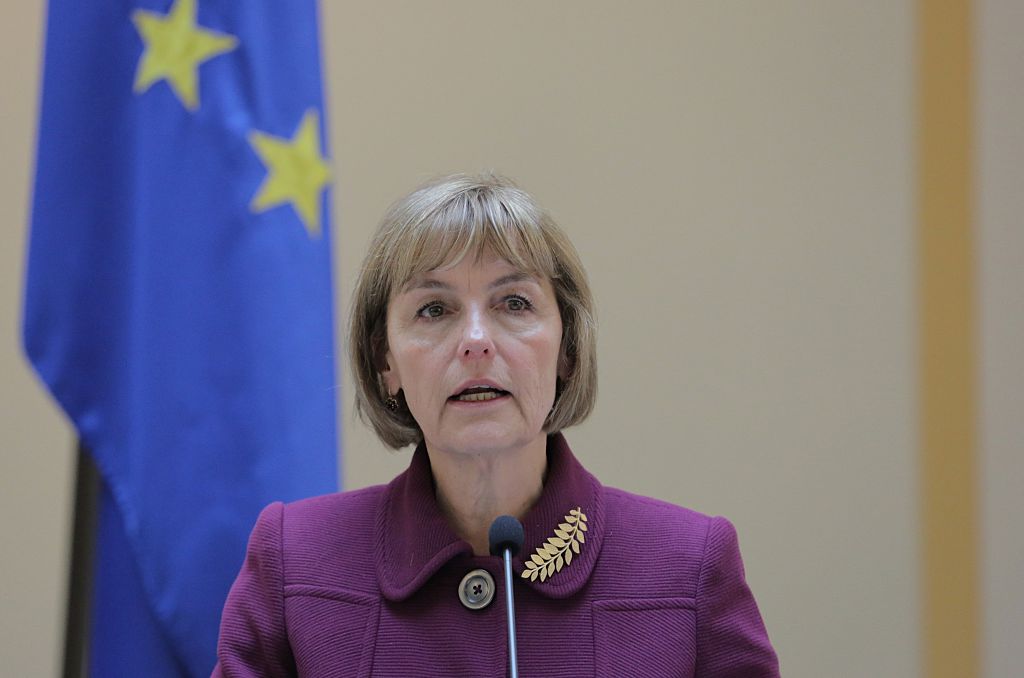
TIME foreign affairs columnist Ian Bremmer spoke to Vesna Pusic, Croatia’s former Minister of Foreign and European Affairs, about her effort to become the UN’s next secretary general.
What is the single most important thing that a UN secretary general can do to make the United Nations a more effective institution?
Simplification of procedures and hands-on approach. All aspects of the organization should be simplified, from budgetary and financial rules to management of human resources and decision-making procedures. Coherent system with fewer internal rules, procedures and layers of decision-making makes for a more transparent, accountable and efficient organization. A permanent item on the agenda of the daily staff meetings has to be management of the organization
In the “vision statement” with which you announced your candidacy, you used the words “flawed” or “flaws” to describe the UN four times in the first four sentences. What aspect of the UN’s work do you believe is in greatest need of reform?
I emphasize that fact to make clear that having a “perfect” UN is not a prerequisite to get results. Whoever becomes the next SG needs to be able to deliver in “imperfect” circumstances, while gradually improving the organization.
The reform is most needed in the peace building architecture and inclusiveness of the UN.
Peace building – tying peace building and peace sustaining more closely to development; strengthening and emphasizing the role of the UN negotiators.
Inclusiveness – involving member states, NGOs, but also the global public into the UN life, decision making, key topics and events.
You’ve described the role of secretary general as “servant of the Security Council” while arguing that a “Secretary-General with the right temperament can help the Security Council reach agreement and can, once a decision has been taken, help keep the Council on side with how it is being implemented.” Please describe this ideal temperament.
The SG follows the Security Council’s directions in matters of peace building. But she or he has to be aware that she has 193 employers who define the possibilities and the boundaries of the organization. A good SG has to know many things: to be a leader, to be an administrator, to be a decision maker, to be a facilitator for other decision makers who often start from opposing position … But she or he also has to know One big thing – she/he has to care; care about the original goals of the UN and about the people whom it serves.
As a citizen of Croatia, what do you believe are the most important lessons the UN should take from its failings in the former Yugoslavia during the 1990s?
UN did many good and important things during the wars of former Yugoslavia in the 1990s. There were some failings. They showed the importance of better defining the mandate of the UN peacekeeping missions – the type of mandate – who and what you are facing; duration – how long you are staying; code of conduct – how do you act while there; and the exit strategy – when do you get out and what do you leave behind.
No institution can be all things to all people. What things do you believe the UN should avoid trying to do?
The one thing the UN and the next Secretary-General should avoid doing is setting goals that are overambitious in relation to available recourses.
You have spoken of “moral authority” as a tool available to the secretary general. How would you use this authority?
The role of the UN Secretary-General, as defined by the UN Charter, is very limited. Whoever gets elected, will have to earn the respect and authority in order to have influence that exceeds what is given by the Charter. It sometimes takes courage, sometimes compromise, but all of the secretaries-general who have made that position influential have done so to a large extent because of their own personality.
More Must-Reads from TIME
- Donald Trump Is TIME's 2024 Person of the Year
- Why We Chose Trump as Person of the Year
- Is Intermittent Fasting Good or Bad for You?
- The 100 Must-Read Books of 2024
- The 20 Best Christmas TV Episodes
- Column: If Optimism Feels Ridiculous Now, Try Hope
- The Future of Climate Action Is Trade Policy
- Merle Bombardieri Is Helping People Make the Baby Decision
Contact us at letters@time.com